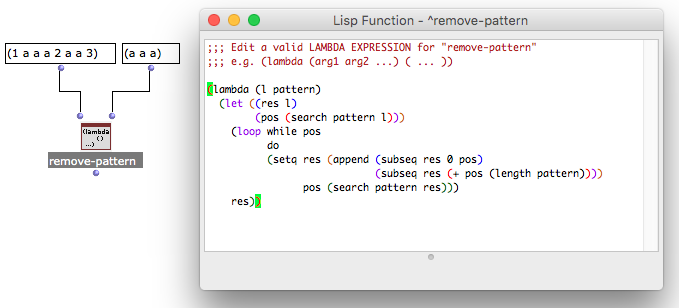This is probably easy, but I don’t know how to do it:
I’d like to filter out one particular sequence from a list.
Like “remove” - but not for a single element but for several elements, and only if they come in that combination.
For instance to filter out (a a a) from (1 a a a 2 a a 1) so that it returns (1 2 a a 1).
Is there a simple function for this?
Thank you and all best,
Soren


